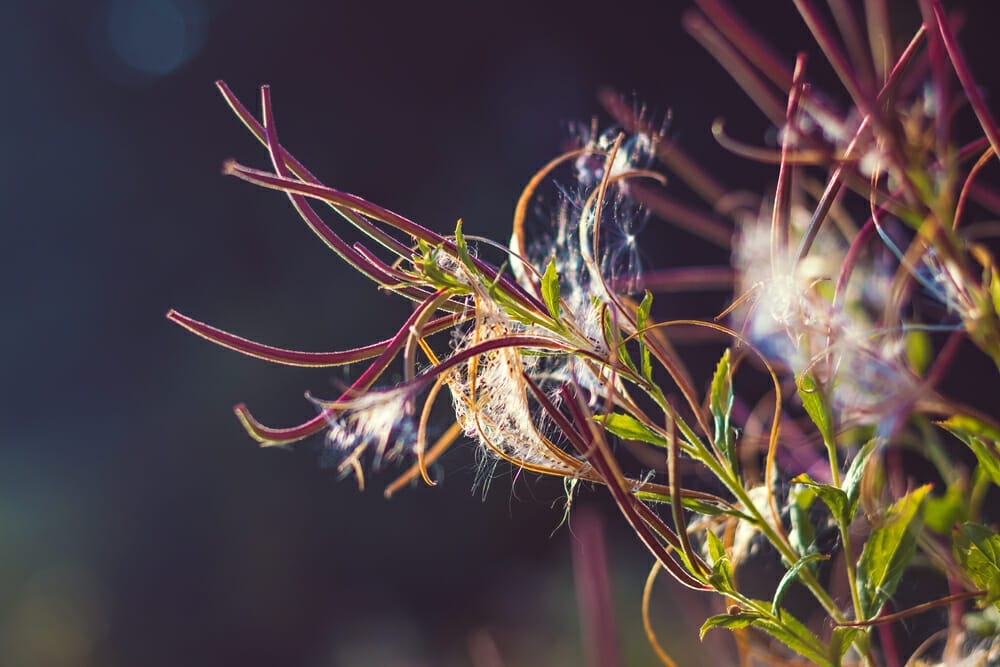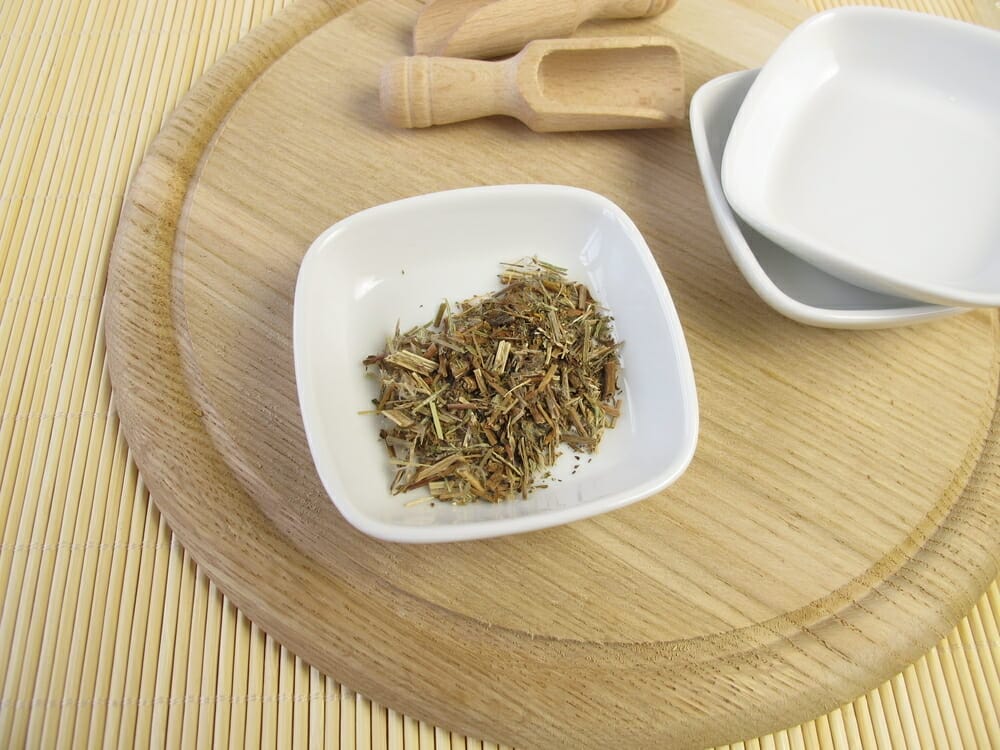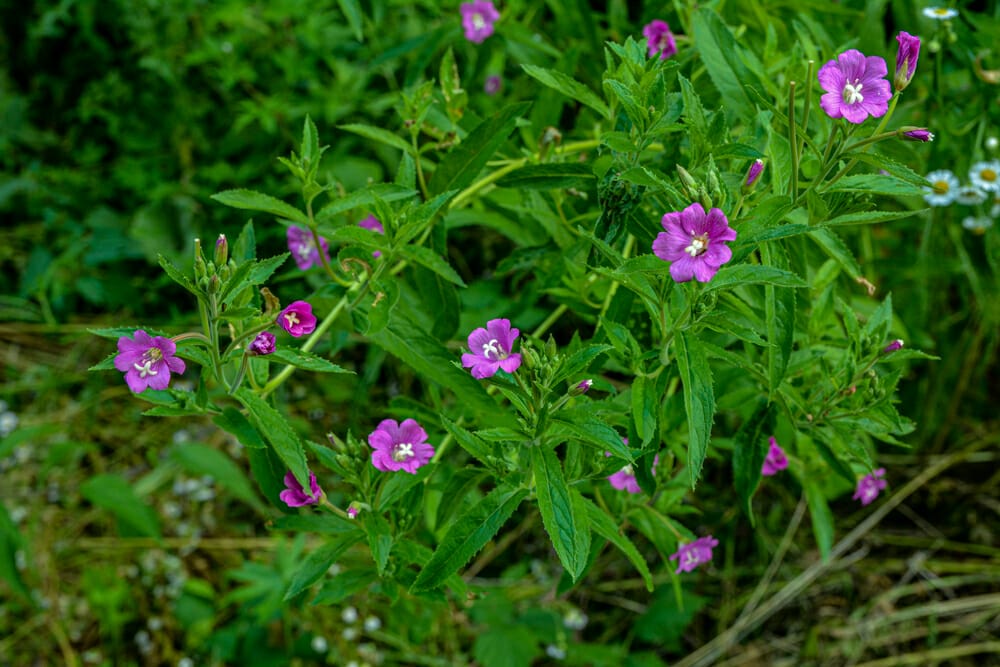In the 19th century, small-flowered willowbush was a remedy for bacterial dysentery, as it effectively eliminated its severe symptoms, such as bloody diarrhea, severe abdominal cramps, nausea and vomiting. However, its other virtues were also quickly appreciated. Today, small-flowered willowberry is primarily one of the most effective herbs for combating urinary tract ailments and supporting prostate health. Appreciated for typically male ailments, small-flowered willow has many other uses as well. Among other things, its medicinal properties are due to the high activity of tannin substances such as oenothein A and oenothein B. Why should you reach for small-flowered willow for prostate and urinary problems? When else can it be helpful? How to use it?
Table of contents
- 1 Small-flowered willow – characteristics. A little-known herb with a remarkable spectrum of actions
- 2 Small-flowered willow – composition
- 3 Small-flowered willow – health-promoting properties.
- 4 Small-flowered willow – action on the prostate and urinary system. That is, a plant-based remedy for “male problems”.
- 5 Small-flowered willow and androgenetic alopecia
- 6 Small-flowered willow for joints
- 7 Small-flowered willow for acne and other skin deficiencies
- 8 Small-flowered willow – application. When to take, how to dose?
- 9 Dietary supplements with small-flowered willowberry
- 10 Small-flowered willow – contraindications.
- 11 Small-flowered willow – side effects.
Small-flowered willow – characteristics. A little-known herb with a remarkable spectrum of actions
Numerous health benefits can come from regular use of small-flowered willow. It has many valuable phytochemicals that strengthen the body, and it also has an excellent effect on the skin. For gentlemen suffering from benign prostatic hyperplasia and for anyone struggling with problems from the genitourinary tract, willowwort can be a golden prescription for stubborn symptoms.
Despite its undeniable benefits, willowbark is a relatively unpopular herb, which is certainly due to the fact that it was discovered rather late and was less frequently described than other herbs. Some of the earliest information about willowbark dates back to 1880. It may not have a rich tradition dating back to antiquity like some medicinal plants, but it is definitely worth a closer look.
Small-flowered willow (Epilobium parviflorum Schreb.) is counted in the evening primrose family. It grows up to 80 cm, the stem is erect and branched in the upper part. The leaves are narrow and lanceolate, and the flowers are small and grow singly in the angles of the leaves. The flower petals are lilac or purple, heart-shaped. The plant blooms from June to September.
The willow plant is found in many places in the temperate zone. It is very common in both Poland and other European countries. It also grows in Asia, North America and Africa. In most areas where it occurs, it is considered a common species. The main habitats of small-flowered willow are wastelands, wild areas, forest clearings, heathlands, meadows, wetlands. It is sometimes grown as an ornamental plant in home gardens.
Although a niche medicinal plant, willow has played an important role in folk medicine. Our grandmothers and great-grandmothers used it for intestinal problems, female ailments, psoriasis, wounds, urticaria, cystitis. The medicinal raw material of small-flowered willow is the herb, i.e. the entire above-ground part of the plant harvested during the flowering period.
Small-flowered willow – composition

Small-flowered willow contains many active components, including oenothein A and oenothein B (these are tannic substances, derivatives of ellagic acid), as well as flavonol glycosides, phenolic acids and plant sterols.
Thanks to these and other elements, it participates in many physiological processes, beneficially affecting the body and reducing many abnormalities. Willow’s action in the body is very wide, from stabilizing hormonal balance, regulating fat metabolism, to inhibiting inflammatory processes and bacterial growth, and detoxifying from toxins.
The main active components of small-flowered willow are:
- tannins (including oenothein A and B),
- flavonoids(quercetin, isocquercetin, hyperoside, afzelin, myricetin, kemferol),
- phenolic glycosides,
- ellagitannins,
- phenolic acids (gallic, ellagic, ferulic, chlorogenic, coffee, cinnamic),
- phytosterols (including β-sitosterols and caproic acid),
- fatty acids (linolenic, palmitic, stearic, arachidic).
Small-flowered willow – health-promoting properties.
The herb of small-flowered willow, thanks to its high content of tannin substances, shows strong astringent properties, thus allowing faster regeneration of damaged tissues. Also, thanks to its tannins, as well as flavonoids and phenolic acids, willow herb shows anti-inflammatory and antimicrobial properties, thus accelerating the fight against various infections. In addition, many of the active substances present in the willow plant contribute to balancing cholesterol and sugar levels in the body.
The herb of small-flowered willow has antioxidant properties, thanks to which the plant helps protect cells from oxidative damage. This, in turn, reduces the likelihood of diseases of civilization and slower aging of the body.
Beneficial properties of willowberry:
- anti-inflammatory,
- Antibacterial, antifungal and antiviral,
- Diuretic (and support the normal flow of urine),
- supporting the prostate gland,
- regenerative,
- tonic,
- astringent,
- anti-seborrheic,
- inhibiting androgenetic alopecia,
- anti-diabetic,
- anti-cholesterol,
- anti-diarrheal,
- anti-hemorrhagic,
- antioxidant,
- anti-cancer,
- immunostimulating,
- cleansing and detoxifying.
Small-flowered willow – action on the prostate and urinary system. That is, a plant-based remedy for “male problems”.

Willow is among the top herbs that support the functioning of the prostate (a.k.a. prostate gland or prostate) and urinary system. It has an intensive and multidirectional effect, which makes it stand out for its effectiveness.
A large number of men struggle with prostate and urinary problems. The most common prostate complaint is so-called benign prostatic hyperplasia. As a result of fluctuations in hormone levels (mainly as a result of a drop in testosterone levels while estrogen levels do not drop), the normal cells of the prostate gland grow. As a result, the entire gland increases in volume, and this in turn results in excessive pressure on the bladder and urinary tract.
As a result of the pressure of the enlarged prostate on the urinary tract, a number of symptoms appear, such as:
- heavy pressure on the bladder and increased frequency of urination,
- intermittent urine stream,
- weakened urine stream,
- longer urination time,
- problems initiating urination,
- problems emptying the bladder completely,
- frequent getting up to go to the toilet at night,
- urinary incontinence.
The aforementioned symptoms of prostate hypertrophy are generally extremely persistent and negatively affect well-being and quality of life. Why it is crucial to alleviate them systematically, for example, with the help of herbs such as small-flowered willow herb.
Willow’s herb effectively combats the annoying symptoms of benign prostatic hyperplasia by:
- increasing urine production,
- improving muscle function in the urinary tract (reducing incontinence),
- increasing the flow of urine and improving the process of emptying the bladder,
- improving urinary tract function and supporting prostate function,
- regulating hormonal balance, leveling prostate proliferation,
- reducing inflammation and pain in the prostate and urinary tract.
Small-flowered willow, for faster and more intensive effects, it is worth using in the form of ready-made preparations containing concentrated extracts of willow herb.
To improve urine flow and reduce urinary frequency in men, other herbal ingredients are also recommended, such as: Sabal palm extract, pumpkin seed extract, pomegranate extract, nettle.
A set of powerful herbal ingredients to support the prostate and provide relief from urinary problems can be found in the formula Prostan Plus.
Small-flowered willow and androgenetic alopecia
Drinking infusions of willow herb or supplementing preparations with willow is recommended for the problem of androgenetic alopecia.
The plant inhibits the activity of the 5-alpha-reductase enzyme, which is involved in the process of androgen synthesis. It also helps block the activity of an enzyme called aromatase (5-AR). Thanks to these properties, it counteracts the conversion of testosterone into dihydrotestosterone (DHT), which in turn reduces androgenetic alopecia.
Small-flowered willow for joints
Joint complaints, associated with joint strain, degenerative changes or past injuries, are an increasingly common health problem. In addition to relieving the strain on the overstressed joint and doing exercises to strengthen the joints, it is recommended to use appropriate plant products that have a beneficial effect on the joints. One of them is the discussed small-flowered willow.
Willow has antioxidant properties, thus protecting the cells of joint structures from damage. It also helps maintain joint mobility and flexibility at a good level. In addition, it eliminates inflammation and pain in the joints.
Small-flowered willow for acne and other skin deficiencies
Small-flowered bellwort will work well for a number of skin ailments, both hormonal (such as acne), as well as seborrheic, viral, fungal and bacterial.
When used in rinses or to wash the skin and mucous membranes, willowwort accelerates healing processes, protects and soothes the skin, while disinfecting and cleansing. It reduces the incidence of eczema, tones the skin, soothes irritation and regulates sebum secretion. Reduces swelling, reduces itching and redness, regenerates the skin.
Small-flowered willow – application. When to take, how to dose?
Small-flowered willow is a plant patent for many annoying, chronic and recurrent ailments. It also works well for lowered immunity, high cholesterol and circulatory problems, as well as for typically male problems.
When to enjoy the benefits of willow flower:
- with benign prostatic hyperplasia,
- in cystitis or urethritis,
- in urinary incontinence,
- when having difficulty urinating and fully emptying the bladder,
- in colds and flu,
- in recurrent infections,
- in acne, seborrhea and other skin problems,
- in alopecia,
- in ailments that proceed with severe inflammation,
- in disorders of hormone levels (mainly in androgen excess),
- in cases of migraines, neuralgia, joint pain,
- in case of accumulation of toxins in the body.
Willow can be consumed in the form of herbal infusions, which are prepared by pouring 2 teaspoons of dried herb over a glass of boiling water. Such an infusion should be steeped covered for 10 minutes. Drink twice a day. If we do not like to drink herbs, there is a range of dietary supplements with willowberry.
Dietary supplements with small-flowered willowberry
A number of ready-made preparations containing extracts of small-flowered willow herb are available in pharmacies and on the Internet. These are generally peculiarities that support the health of the prostate gland, relieve joint complaints and combat urinary tract ailments.
Small-flowered willow is often combined with other ingredients with related effects. Such multi-element supplements generally boast high efficacy. In the case of prostate problems, it is worth paying attention to the multicomponent preparation Prostoxalen containing a rich complex of extracts that support urinary and prostate health.
Small-flowered willow – contraindications.
The use of small-flowered willow should be abandoned by those who have an allergy to the plant. Other contraindications include pregnancy and lactation.
Small-flowered willow – side effects.
Although small-flowered willow is an herb, it cannot be used without moderation. Stick to the dosage recommended by the manufacturer of the herbal product or dietary supplement with willow. Do not exceed the recommended portion of the product to be consumed per day.
Like any herbal remedy, willowwort may cause side effects. For women, a slight change in the menstrual cycle is possible, as the plant has been shown to affect hormonal balance. When using the herb in excess, headaches, abdominal pain, skin reactions may occur.
Check out the herbal prescription for urinary complaints: Parsley – health-promoting properties

